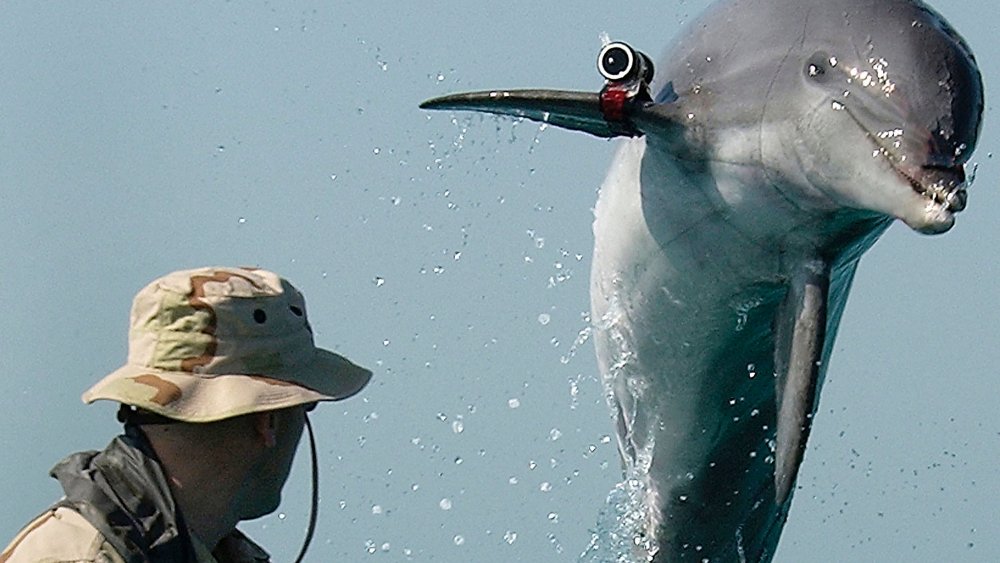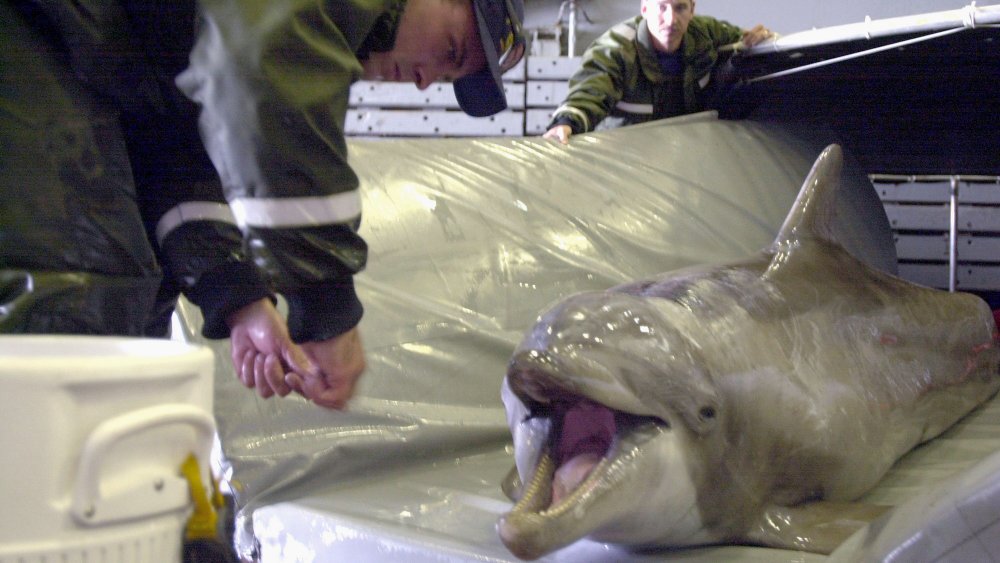How Dolphins Help Protect U.S. Nuclear Weapons
Most societies have deemed it taboo to eat marine mammals "because of their 'cute' factor, charisma and intelligence," according to Nature. Humankind's affinity for dolphins explains why tuna are doomed to be seen as sea chickens, and have their minced corpses packed in cans that are labeled "dolphin-safe," even if those cans might be lying to you, as CBS points out. At the very least you must feel like you're protecting the dolphins.
Unlike the tuna, whose superpower is apparently tasting great with mayonnaise, the dolphin has an adorably large forehead reminiscent of a human baby, and it may be the OBGYN of the sea, as Live Science describes, since these amazing animals might be able to sense pregnant women's fetuses using echolocation. Dolphins don't just double as a makeshift pregnancy test for beach goers, though. They help protect humanity from nuclear oblivion. You might think of it as them doing humans a solid for trying to prevent them from ending up in cans of solid tuna. Or maybe Flipper taught them all to be heroes out of the goodness of his heart. Either way, here's how dolphins save the day.
Dolphins are the bomb
The U.S. Navy says that in 1959, they began training dolphins and sea lions to aid sailors and Marines in bomb detection, as part of their Marine Mammal Program. In the early going, sea turtles, sea birds, sharks, and rays were also put to the test. Ironically, the Navy makes no mention of seals, though maybe they were excluded to avoid confusion. Many creatures didn't make the cut, but because dolphins are remarkably sharp and "naturally possess the most sophisticated sonar known to science," their melon was ripe for finding explosives. The Navy enlisted dolphins to detect mines when it entered entered the Iran-Iraq War in the 1980s, and before the Iraq War in 2003, among other operations, per Business Insider. Today, dolphins also guard one of the largest arsenals of nuclear weapons on the planet, a doomsday collection located at the Kitsap Naval Base about 20 miles away from Seattle, Washington.
You might wonder how much defense dolphins could possibly provide against incoming bad guys looking to tamper with nuclear weapons. What are the dolphins going to do? Look cute and offer a pregnancy test? Hopefully. But dolphin handler Clayton Swansen explained that the animals receive a bite plate that can trap intruders: "They just hit the person in the leg and it attaches around their leg and they can't pull it off until it sends a float up."

